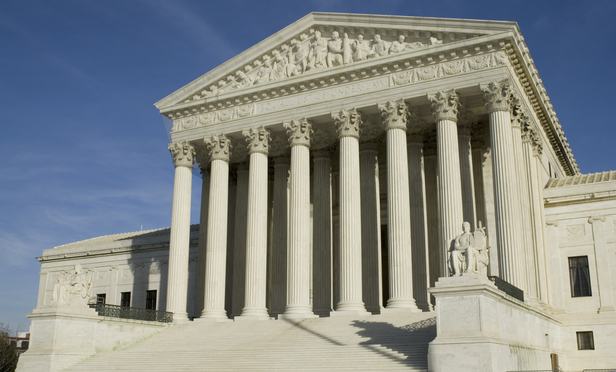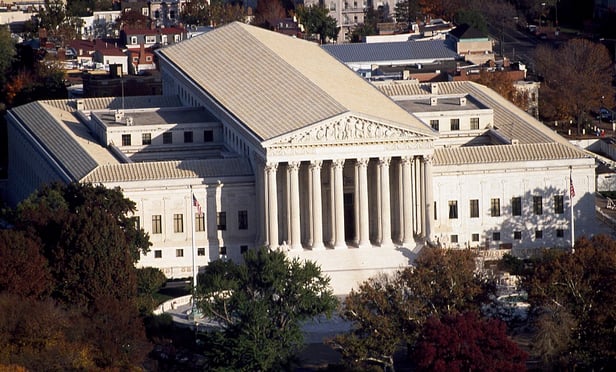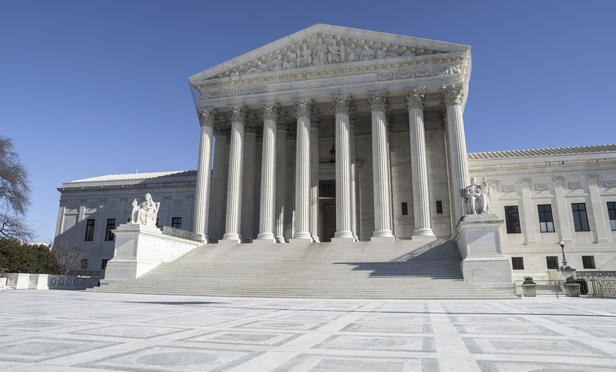Stephen A. Miller

January 14, 2015 | The Legal Intelligencer
U.S. Supreme Court Analyzes Pregnancy DiscriminationIn , No. 12-1226, the U.S. Supreme Court will decide the appropriate standard to apply in determining whether an employer has violated the Pregnancy Discrimination Act. More specifically, the court will determine under what circumstances pregnant employees are entitled to work accommodations that are provided to their non-pregnant coworkers.
By Stephen A. Miller and Jessica A. Hurst
8 minute read

December 29, 2014 | The Legal Intelligencer
Social Media Posts Take Center Stage at U.S. Supreme CourtIn United States v. Elonis, No. 13-983, the U.S. Supreme Court will attempt to define when comments made on social media platforms cross the line from protected free speech to criminal activity. The case arose in our own Eastern District of Pennsylvania. Anthony Elonis posted violent rap lyrics and graphic messages on Facebook about his estranged wife, co-workers and an FBI agent. The communications were objectively threatening, but the relevant question is whether that speech is protected if the government cannot prove that the speaker intended to act on the threat.
By Stephen A. Miller and Alexa L. Sebia
6 minute read

December 04, 2014 | The Legal Intelligencer
U.S. Supreme Court to Consider Federal Procedure QuestionsThis term, the U.S. Supreme Court is set to consider a number of issues in the area of federal practice and procedure. This article analyzes three of those important cases.
By Stephen A. Miller and Stephen S. Kempa
7 minute read

November 10, 2014 | The Legal Intelligencer
Supreme Court Takes on Knowledge Standard in Securities SuitsEveryone knows that whistleblower lawsuits can be expensive. Just ask Omnicare Inc., a Fortune 500 company that provides pharmaceuticals along with related consulting and data management services to health care facilities across the country. Omnicare recently agreed to pay more than $124 million to settle whistleblower allegations of health care fraud (without confessing any liability).
By Stephen A. Miller and Kaitlin M. DiNapoli
7 minute read

November 06, 2014 | The Legal Intelligencer
Supreme Court Addresses Treatment of Incriminating EvidenceIn the coming months, the U.S. Supreme Court will decide two cases relating to incriminating evidence—one concerns finding it, and the other concerns destroying it. In Heien v. North Carolina, No. 13-604, the court will decide whether the Fourth Amendment allows the introduction of evidence obtained in the course of a police officer's traffic stop that was predicated on a good-faith mistake of law. In Yates v. United States, No. 13-7451, the court will address whether the destruction of evidence prohibited by 18 U.S.C. Section 1519 applies to a fisherman accused of catching undersized fish who allegedly destroyed the evidence of that crime—namely, the contraband fish.
By Stephen A. Miller and Michael D. O'Donnell
6 minute read

October 02, 2014 | The Legal Intelligencer
U.S. Supreme Court Clarifies Standards for Restitution OrdersIt would be easy to overlook the U.S. Supreme Court's decision last term in Paroline v. United States, 134 S. Ct. 1710, 188 L. Ed. 2d 714 (2014). Many other cases involved hot-button issues like the Affordable Care Act's contraceptive mandate, legislative prayer, campaign finance, recess appointments, and free speech around abortion clinics. Indeed, Paroline—a child-pornography case—went unmentioned in both Erwin Chemerinsky and Frederick Lawrence's Supreme Court Review at the National Constitution Center and Paul Clement's counterpart for the Philadelphia Lawyers Chapter of the Federalist Society. Such decisions seldom apply to cases outside of that uniquely awful realm.
By Stephen A. Miller and Kaitlin M. DiNapoli
8 minute read

September 04, 2014 | The Legal Intelligencer
Preview of the U.S. Supreme Court's October Term in 2014The U.S. Supreme Court chooses the cases it will adjudicate. Armed with that power, the justices usually assemble an all-star cast of interesting cases in a number of areas of law. Here are some of the highlights of the court's docket for the upcoming term:
By Stephen A. Miller
4 minute read

July 03, 2014 | The Legal Intelligencer
U.S. Supreme Court Doubles Down on Fair Labor Standards ActThe U.S. Supreme Court's docket is not usually filled with Talmudic explorations of the Fair Labor Standards Act. It may be too soon to say that the tide is turning, but it is true that the court has already granted an FLSA case for next term on the heels of its decision in a related case this past January. Both of these cases have far-reaching consequences for employers, since back pay, overtime and double damages for employees are on the line. The cases involve the compensability of certain activities—donning and doffing protective gear in the case decided in January and going through a security screen in the new case—that employees must complete to perform their jobs, but are not necessarily the crux of the jobs themselves.
By Stephen A. Miller and Kaitlin M. DiNapoli
7 minute read

June 05, 2014 | The Legal Intelligencer
Justices Consider First Amendment Challenges at Oral ArgumentsIn this term, like so many others, the U.S. Supreme Court focused considerable attention on the First Amendment. The court heard oral arguments in April in two such cases--one concerning the protections afforded a public employee while testifying under subpoena, and one concerning the ability of individuals to challenge speech-restrictive campaign laws. Both of these cases present the court with the difficult task of applying longstanding doctrine to new and perplexing problems.
By Stephen A. Miller and Jordan S. Fox
8 minute read

May 01, 2014 | The Legal Intelligencer
Court Considers Warrantless Searches of Mobile PhonesThroughout its history, the U.S. Supreme Court has faced the difficult task of reconciling traditional notions of privacy with evolving species of technology. The latest fault line was confronted at oral argument Tuesday.
By Stephen A. Miller and Kristy Z. Miller
6 minute read
Trending Stories
- 1How to Litigate Before the EU’s Top Court, the European Court of Justice
- 2After Solving Problems for Presidents, Ron Klain Now Applying Legal Prowess to Helping Airbnb Overturn NYC Ban
- 3Attorneys Allege Contract Broken for Sharing $13M in Fees From MDL
- 4ZwillGen Acquires Lawyers, Scientists and Technology from Luminos.Law, Developer of Luminos.AI Platform
- 5Clifford Chance Strengthens Private Credit Offering With Mayer Brown Partners
More from ALM
- Scan In Progress: Litigators Leverage AI to Screen Prospective Jurors 1 minute read
- Legal Speak at General Counsel Conference East 2024: Match Group's Katie Dugan & Herrick's Carol Goodman 1 minute read
- Legal Speak at General Counsel Conference East 2024: Eric Wall, Executive VP, Syllo 1 minute read



